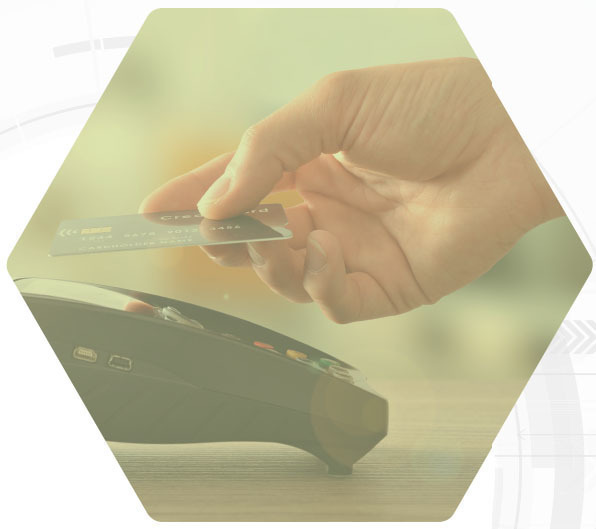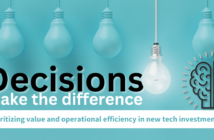As the world continues to change quickly, here are the pieces of tech you should pay attention to and how they can impact your bottom line.
Because the COVID-19 pandemic upended how people approach mostly every part of a business, it’s no wonder innovative technology solutions have entered the market to solve the pain points either created or exacerbated by the crisis.
“The pandemic, coupled with an evolving labor landscape, has forced owners and operators to take a new look at how they run their hotels that will likely last forever. Many roles and departments have been centralized, and reduced staff sizes on property will lead to employees operating more efficiently,” says Rod Jimenez, CEO of SHR. “Fortunately, owners and operators were able to turn to technology to help overcome these challenges.”
But what tech should hoteliers focus on as we continue to deal with what feels like an unending pandemic? Continue reading to learn about several key pieces of tech that have helped hoteliers adapt during the crisis and will help them continue to innovate as we navigate new COVID variants and the travel-recovery stage.
Here are some important pieces of tech all hoteliers should have on their radar and how each one can impact a property’s bottom line.
SPOTTING THE RIGHT TECH
 There’s so much tech out there. How can you ensure you’re picking the right solutions for your business? The bottom line is that any tech that solves a problem and ultimately saves costs and/or resources is a good choice. Rod Jimenez, CEO of SHR, provides three tips:
There’s so much tech out there. How can you ensure you’re picking the right solutions for your business? The bottom line is that any tech that solves a problem and ultimately saves costs and/or resources is a good choice. Rod Jimenez, CEO of SHR, provides three tips:
1 Focus on your needs. Don’t be distracted by shiny new toys. Look at areas where you are falling short and where investment would have significant impact. Evaluate what guests are expecting now from their lodging experience and use technology that helps meet those needs.
2 Ask three questions: Will it save me money? Will it help drive revenue? Will it improve the guest experience? If the solution can do at least two of those, it’s definitely worth taking a closer look.
3 Weigh the short and long term. In today’s environment, digital adoption is affecting nearly every part of our lives. If you choose to ignore it, or take baby steps, it won’t be long before competitors have passed you by. Choose partners who are in it for the long run and are excited to build and innovate alongside you.
THE TECH: CONTACTLESS CHECK-IN

SHAINEAST/SHUTTERSTOCK.COM
Contactless check-in, while not new to the industry, has certainly evolved and become top of mind for guests, and that means hoteliers need to meet these new demands. “The COVID pandemic shifted contactless check-in experiences from a nice-to-have to a must-have,” said Virdee Co-Founder Nadav Cornberg. “Hoteliers who aren’t allowing their guests to check in on their preferred device and bypass the front desk are now disappointing guests right at the onset of their experience with your property.”
THE BOTTOM LINE
Cornberg said that contactless check-in tools, such as via a mobile app or a lobby kiosk, provide an opportunity to trim labor costs by allowing operating staff to work more efficiently. It can give team members the ability to multitask and provide a value-added guest experience because staff is freed up from completing the mundane tasks that are easily automated.
“Tools that can help automate tasks at the property level will save labor hours and, therefore, reduce expenses. At the front desk, instead of staffing two agents, you could now schedule one, and that employee should no longer be stuck behind a desk punching a keyboard. And some properties will consider removing the front desk completely,” Cornberg said.
In a similar vein, Jill Dean Rigsbee, CEO and founder of iDeal Hospitality Partners, said that self-checkout kiosks for retail outlets, such as a grab-and-go center, that tie into the property management system can keep labor resources at the front desk. Meanwhile, guests are happy they don’t have to wait in line for a bottle of water or snack, and it can lead to more sales because it eliminates a purchasing barrier for guests.
THE TECH: MOBILE TOOLS THAT ELEVATE THE GUEST EXPERIENCE

DAVIZRO PHOTOGRAPHY/SHUTTERSTOCK.COM
The industry has long talked about providing a great guest experience while on property, but experts say the discussion needs to shift to the digital guest experience. After all, the pandemic has caused the majority of consumers to think “digital first.” That means digital tools – such as mobile apps, two-way messaging tools, mobile payment options like digital wallets, mobile-friendly websites, virtual assistants, and more – can help amplify and personalize a digital guest experience.
“Improving your digital interactions with your guests along their journey is critical to future-proofing your business,” Cornberg said. He points to other areas of the travel industry as leaders, such as airlines that implement digital tools like kiosks, digital boarding passes, and new innovations like CLEAR, which uses biometric scanning technology to let travelers skip through airport security and identification procedures for a streamlined experience. Cornberg also cited Uber as an example for its ease of use and how it revolutionized how many people use transportation.
“Then, once the traveler walks into the hotel lobby, they put away their phone and stand in line behind a desk,” Cornberg added. “Mobile is redefining the way we travel, and, once again, the lodging industry is slow to adapt.”
THE BOTTOM LINE
Being slow to adopt mobile technology could mean hoteliers are leaving money on the table.
“We are just at the tip of the iceberg of ways we can improve guests’ digital experience while also driving revenue,” Cornberg said. “‘Unbundling’ has a negative connotation, but there are many instances where guests would gladly pay to personalize their experience at your property, whether that’s by choosing their room, adding F&B options, extending their stay, adding reservations or tickets to local attractions, etc.”
By leveraging mobile tools that create a seamless digital guest experience that takes the friction out of the equation, hoteliers can create upsell and ancillary-spend opportunities.
THE TECH: CENTRALIZED COMMAND CENTER POWERED BY AI

MY LIFE GRAPHIC/SHUTTERSTOCK.COM
It’s no secret that tech for the hotel industry is highly fragmented, and data silos can lead to blind spots that bottleneck the best decision-making. Simply put, connectivity is key to success. Experts point to solutions that help hoteliers connect all their systems and data, from integration of the central reservation system to a guest-management system, revenue-management system and more.
“We envision a less fragmented tech stack where hoteliers have one place to go – a centralized command center – where they can track traveler behavior and truly present the right individual offer to each guest,” Jimenez said. “A key prerequisite is the interoperability between systems. Just as the organizational structure within hotel teams has become less siloed, applications are now more connected, and the automation of workflows and processes that involve data from multiple systems is now a reality.”
But, as the labor shortage continues to be a top challenge for hotels, artificial intelligence (AI) becomes all the more important. AI can help take much of the human element out of the equation, meaning more operations can be centralized, Jimenez added.
THE BOTTOM LINE
Hoteliers have so much data at their fingertips, but it doesn’t drive revenue unless they can extract the key insights that lead to better business decisions.
“As recovery starts to take shape, hoteliers are relying on data more than ever to understand new traveler behavior patterns and present their properties to new sets of customers. As historical data is less relevant and new sources of data are available for their forecasting, tools that help operators forecast demand and market to the right segments of guests using the most profitable channels will continue to be invaluable,” Jimenez said.
And, when tech tools are powered by AI, automation becomes a competitive advantage. “Leaders can now oversee more properties and shift their focus to broader, holistic profit strategies, and return to the job of hospitality and creating memorable experiences for their guests,” Jimenez says.
“In the end, it’s not necessarily that one piece of tech is more important than the other; it’s that hoteliers can now use technology in a more integrated, holistic way to respond to a rapidly evolving environment,” he added.
Rigsbee agrees. “Make sure you’re working with a company that truly understands how the hotel business operates and offers an ROI, and/or solves problems specific to hotels,” she said. “Understand what your guests’ needs truly are in today’s environment.”




